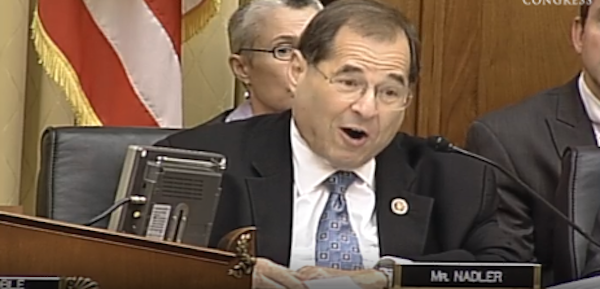Artist royalties are, and have always been, notoriously under-legislated. This past Tuesday, however, we saw an important tipping point for legal change. This is when Congressman Jerrold Nadler (NY-10), the Ranking Member of the House Judiciary Subcommittee on Courts, Intellectual Property and the Internet, introduced the American Royalties Too (A.R.T.) Act at a House subcommittee meeting.
The goal of the A.R.T. Act is to correct current copyright law, which, as it stands now, forgoes giving a single penny to artists from resales of their work. The act, if passed, will require that a modest 5 percent cut of all resales go to the artist. Ted Feder, the president of the Artists Rights Society, said in a statement to The Art Newspaper that he hopes the act will pass before the end of the year, but concedes that it is likely to be assimilated into a larger copyright bill expected to come before Congress next year. That could very well be the case given that in the past month, the predicted chance of the bill being enacted has gone up from 2 percent to a whopping 3 percent.
Though its unlikely the bill will pass in its current state, artist resale rights are needed. Under current copyright laws, there is an all-too-common narrative: an artist sells his or her work to a collector, the artist acquires more artistic clout, and the collector resells the work years later for a larger sum. Since the collector is not legally obligated to give the artist any portion of that resale, the artist makes no money off future sales; very often, they end up staying broke. The unfairness of this is obvious; it’s largely the artist’s hard work, talent, and devotion to a career that boosts the price of the work over the years. Artists deserve checks.
Auction houses are resistant to this change; Sotheby’s has retained the high-powered Washington lobbying firm the Podesta Group to represent its interests, the effects of which have yet to be seen. “I think they are guarding their hand,” Feder again commented to The Art Newspaper. “They are probably doing some lobbying in the corridors.”
These methods have worked in the past: In 2011, large auction houses thwarted a rudimentary version of A.R.T. Act, called the “Equity for Visual Artists Act.”
Still, the fact remains that compared to other artists, visual artists have the shortest end of the stick. Musicians, composers, and writers all have royalty protection under United States Copyright Law. The imbalance isn’t even just from career to career; 70 other countries around the world have enacted copyright legislation which protects visual artists and their work. And what happens if a painting by an American artist is resold to a collector in Paris? The artist gets nothing.
In his closing statement at the House subcommittee meeting, Nadler reiterated that “serious consideration of a resale royalty right is long overdue.” So while we won’t be holding out hope for the bill in its current form to pass, Nadler’s closing statement suggests that we’re moving closer to a point in time where we can.



{ 1 comment }
Lobbying, aka bribery, usually trumps fairness and common sense. Many thanks to Jerrold Nadler. I remain hopeful.
Comments on this entry are closed.